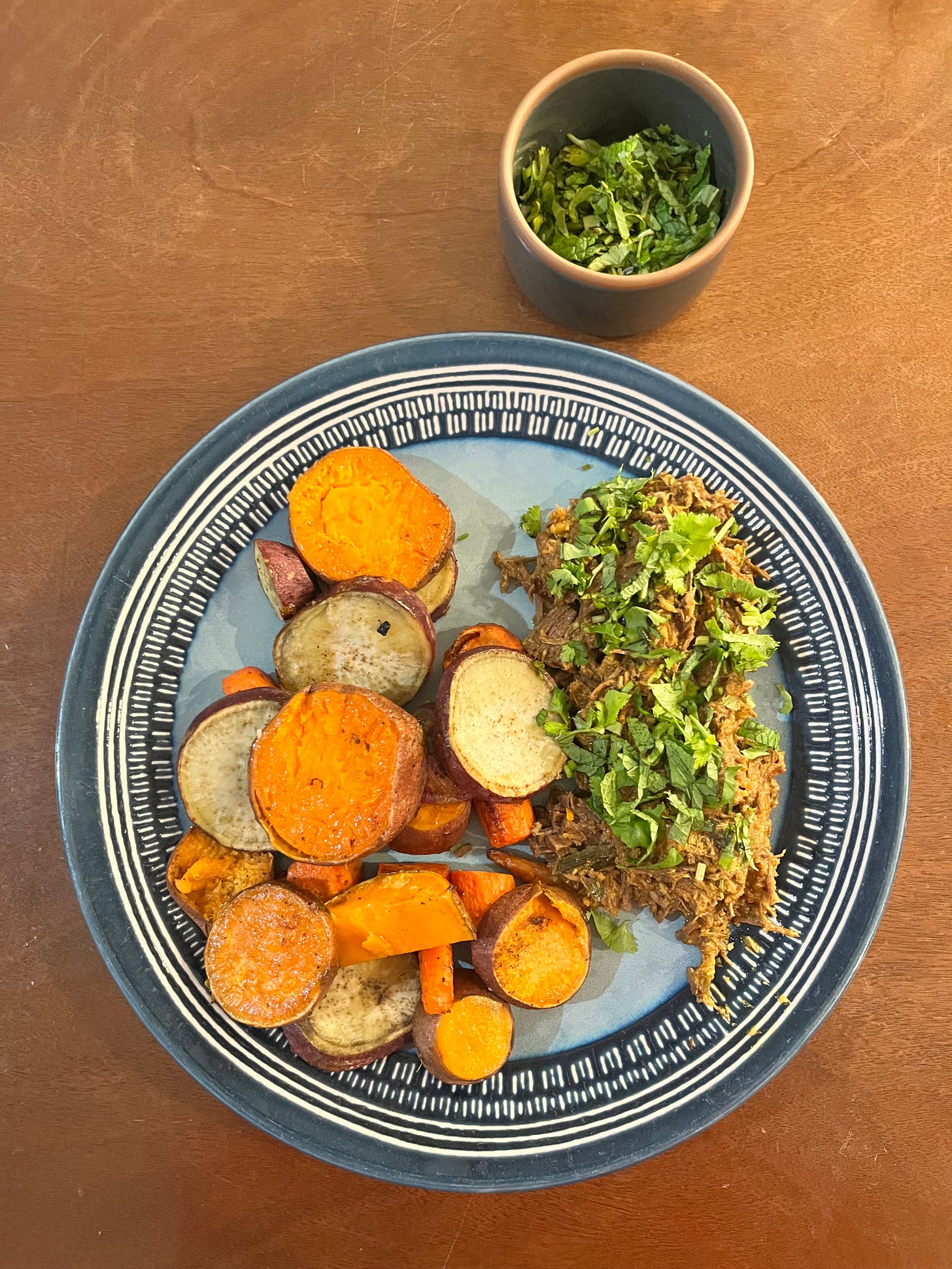Hello,
I’m writing to you from the tail end of a slightly bizarre food experiment I was embarked on for January. As my husband rightfully says, the worst thing about people on special diets is how much they talk about their diets, so I will not go on and on, except to say—one doesn’t realize how much sugar we consume until we seek to actively avoid it. It seems like every single food in the grocery store that comes in a package—from mayo to ketchup to sausages (??) has added sugar. It’s very, very confusing. Now, being restricted from most things in the middle aisles of the American grocery store, I’m finding that my grocery hauls look a lot like what my father brought home from the markets every Sunday when I was growing up —a ton of bags filled with produce. It’s a good feeling. Anyway, here’s a photo of Burmese beef curry I made the other day.
I’ve been re-reading The Years by Annie Ernaux. I read it a few years ago, right before she won the Nobel, and for some reason, had an itch to go back to it. I rarely re-read books—how can one, when there is so much, too much, to be read—so when I have an urge to return to something, it’s usually a deep, very smart instinct within me, one I try to respect.
The Years is a memoir that covers the period between 1941 and 2006 (in 231 pages). It’s a recollection of Ernaux’s own life, but also the history of France, the history of the post-war generation, and of Europe. It’s an absolutely stunning piece of work. I’m in awe of every single page, the steep ambition of it, the tremendous skill with which this ambition has been met. Quite frequently, I have to put it down.
There are such fine details in the pages, names of photos and books and songs, advertisements and grocery store visits, but the most cutting parts for me are places where the writer zooms out and gives pithy summaries of what it was to be alive at that moment. These aphorisms are what makes her work stand out.
I find myself so deeply drawn to a certain milieu of European female writers—Ferrante, Ernaux, Erpenbeck. And yes, of course, they’re all tremendous writers, but I think there’s something else. Excuse the somewhat teleological view of history, but I think that a lot of what these postwar European writers were describing—the shift from scarcity to abundance, the defection of provincials into the cities, the massive changes in women’s place in society—would all happen in places like Pakistan a few decades after, a time that I am very familiar with. In fact, all of this made its way into my second novel, A Splintering. One very, very strange thing that happened is that when I read Ernaux, I recognize so many things that I have written, so many social and gender dynamics that I have described in different words, in A Splintering. That’s also why I must put Ernaux down every now and then—it sometimes feels painfully close.
All this to say, please, please read The Years. Even people who have read Ernaux have usually read her mid-life crisis one about lusting after a perfectly mediocre Russian man, but The Years is a class apart, one of the most dazzling books I’ve ever read. As always, thanks for reading; I’m looking forward to sharing the cover for A Splintering here soon.
All the best,
Dure




Really enjoyed reading this. I must pick up The Years soon. But if I'm honest, I'm looking forward to reading A Splintering even more!
The Years blows my mind every time!! I love picking it up and reading a little bit from a random page.